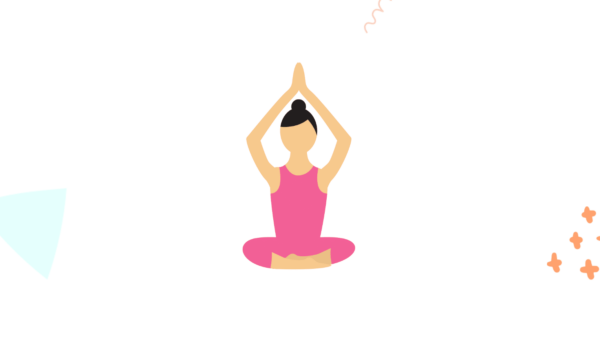This article is part of Hive’s Mental Health Week initiative. To celebrate World Mental Health Day on October 10th, we’re hosting a panel all about mental health at work. To compliment that panel, we’re releasing articles throughout the week about mental health in an effort to open and improve dialogue around mental health.
Meditation has become a buzzword in the wellness community over the last 10 years, and is now the fastest growing health trend in the United States. There are dozens of meditation apps on the market, meditation studios where you can practice with a group, and even week-long meditation retreats that you can sign up for.
When it comes to meditation, the science is definitely there to back up any anecdotal claims of its benefits — it really does help reduce negative activity in the brain and increase activity in the part that aids in positive emotion and attention. Meditation has also been shown to alleviate anxiety and depression, increase focus, make you more creative, and enhance our ability to connect and empathize with others.
Related: How Working Out At Lunch Made Me 90% More Productive
We’ve written before about how meditation is becoming the next big productivity tool — it’s effects on focus, memory and positive emotions are hard to argue with. And being the forward-thinking tech startup we are, we decided to conduct an office-wide Hive experiment to see how much of an impact meditation really makes on our ability to get things done. To kick this experiment off, we brought a meditation expert into the office from MNDFL, one of our partners throughout our Mental Health Week initiative (which you can learn more about here). MNDFL is a meditation studio in New York that teaches a variety of class types, ranging from breath to mantra classes, and also offers corporate in-office sessions.
Hive employees gathered in our biggest conference room at 11:30 AM, right before lunch, to take part in a 30 minute MNDFL Breath class, which is described as “a practice that grounds you in the here and now like a cold shower on a hot summer day. Learn to focus on your breathing in order to become more present. Work with the breath in a way that allows you to be more calm and not get too lost in your own head.”
Related: Should We Be Bringing Our Cats To Work?
For thirty minutes, we worked with a MNDFL teacher to quiet our minds, improve our breathing, and center our awareness. After class was wrapped, I decided that Hive employees would take part in a little experiment — we’d anonymously collect the number of tasks they completed today in Hive, and in the days following the meditation, to compare the results to prior weeks. Then we’d use that data to posit the effectiveness of the class.
Now I know what you’re thinking: Isn’t meditation a “practice?” Don’t you need to do it more than one? And the answer is yes. But our staff immediately noticed calming effects, anxiety reduction, and increased focus. And we wanted to see how that played out in our overall productivity.
When I went back over the data, the results were impressive. That one, 30-minute meditation class actually improved our employees productivity by a whopping 47% on average, when compared to the average tasks completed on that day of the week. We also had resounding positive feedback from employees — one of our Account Executives noted that “After meditating, my head felt totally clear. Once I got back to my desk, I ran through a list of contracts that I had to write in half the time it usually takes. I had a new focus that lasted for hours.”
Related: What Is A Mind Sweep? Do You Need One?
Now, we’re not saying that all it’s going to take to improve office moral or productivity is a singular meditation session. But incorporating wellness rituals on a weekly and monthly basis at your company could set the stage for positive improvements at an individual and company level. You can’t argue with the science — meditation does increase empathy and your ability to connect with the people around you, which is pretty pivotal in the office.
A Hive team member also noted that “the office felt lighter, less anxious, and less hectic,” which makes sense, because the decreased anxiety on an individual level can lessen the office’s anxiety as a whole via emotional contagion, or the idea that “emotions, both positive and negative, actually spread among your employees like viruses.” (Read more about emotional contagion here.) And if a meditation practice can help prohibit the spread of negative emotions, it’s definitely a work perk worth looking into. If you’re in the NYC area, check out MNDFL’s corporate classes here.
Do you practice meditation? Does your company meditate together? Let us know in the comments below.




